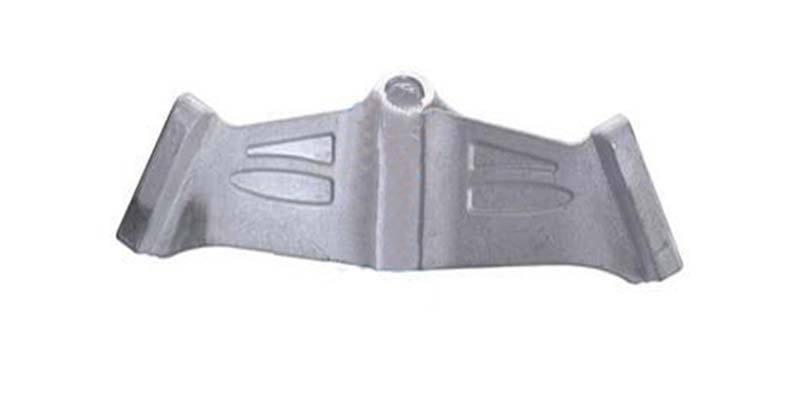- Contact Innally, Let you purchase forgings in China more favorable prices, products more assured!
- Hotline:+(86)15038323776 Email:innally@innally.com
Corrosion protection and maintenance of aluminium forgings: a practical guide
- Category: Aluminium alloy forging, Thermal forging
- |
- Date: 09/01/2024
Through reasonable maintenance and management, the service life of aluminum alloy forgings can be effectively extended, the corrosion risk can be reduced, and the economic benefit can be improved.
Product Details
Aluminum alloy forgings have been widely used in many fields because of their excellent properties. However, aluminum alloy materials also face the problem of corrosion. In order to ensure the service life and safety of aluminum alloy forgings, it is important to understand its anti-corrosion and maintenance methods. This article will provide you with a practical guide to help you better protect your aluminum forgings.
First, the corrosion mechanism of aluminum alloy
Corrosion of aluminum alloy is mainly divided into chemical corrosion and electrochemical corrosion. Chemical corrosion is due to the chemical reaction of aluminum alloy with oxygen, water vapor and other media, resulting in surface oxidation. The electrochemical corrosion is due to the contact of aluminum alloy with other metals, forming a galvanic effect and accelerating the corrosion process.
Second, aluminum alloy forgings anticorrosion method
Surface coating: Coating the surface of aluminum alloy forgings with anti-rust oil, anti-rust coating, etc., to form a protective layer to isolate the contact between metal and corrosive media.

Anodizing treatment: an oxide film is formed on the surface of the aluminum alloy by electrolytic method to improve corrosion resistance.
Thermal spraying: The use of thermal spraying technology on the surface of aluminum alloy to form a layer of dense coating, such as zinc, aluminum, etc., to enhance anti-corrosion performance.
Metal coating: On the surface of aluminum alloy electroplating or electroless plating on a layer of good corrosion resistance metal, such as chromium, nickel and so on.
Passivation treatment: Through chemical methods to form a stable passivation film on the surface of aluminum alloy, improve corrosion resistance.
Third, maintenance suggestions for aluminum alloy forgings
Use environment: Try to avoid exposing aluminum alloy forgings to harsh environments such as humidity, salt spray, acid and alkali, and prevent direct contact with harmful media.
Regular inspection: Regular inspection of aluminum alloy forgings used for a long time to see if there is corrosion on the surface, timely detection and treatment.
Cleaning and maintenance: Use a gentle cleaning agent to regularly clean the surface of aluminum alloy forgings, remove dirt and impurities, and keep it clean.
Avoid scratching: Avoid scratching aluminum alloy forgings with other metals or hard objects to prevent surface damage and corrosion.
Storage management: During the storage process, keep the aluminum alloy forgings dry and ventilated to avoid contact with other metals or corrosive substances.
Maintenance and replacement: If the aluminum alloy forgings are found to have serious corrosion or damage, they should be repaired or replaced in time to prevent the expansion of corrosion.
Pre-use treatment: Before coating or anti-rust treatment, ensure that the surface of aluminum alloy forgings is clean and dry to improve the anti-corrosion effect.
Training of operators: Training of operators and maintenance personnel to improve their understanding of aluminum alloy materials and anti-corrosion maintenance knowledge to ensure the correct use and maintenance of aluminum alloy forgings.
Establish maintenance files: Establish maintenance files for each aluminum alloy forging, record the use, maintenance records and other information, easy to track and manage.
Continue to pay attention to new technologies: pay attention to new technologies and new methods in the field of anti-corrosion, choose appropriate anti-corrosion measures according to the actual situation, and improve the durability and safety of aluminum alloy forgings.
To sum up, in order to ensure the service life and safety of aluminum alloy forgings, it is important to understand its anti-corrosion and maintenance methods. In practical applications, choose the appropriate anti-corrosion measures according to the specific situation, and follow the maintenance recommendations for operation and use. Through reasonable maintenance and management, the service life of aluminum alloy forgings can be effectively extended, the corrosion risk can be reduced, and the economic benefit can be improved.
nannan
INNALLY mainly provides you with various types of cast and forged parts products. Welcome your inquiries! innally@innally.com
Related Products
Search
Forging center
- Steel forgings
- Aluminium alloy forging
- Titanium alloy forging
- Stainless steel forging
- Copper forging
- Automotive forgings
- Locomotive forging
- Bicycle forgings
- Motorcycle forging
- Rigging and fasteners
- Bearing forging
- Electric power fittings
- Marine forging
- Mechanical forgings for metalworking
- Mining machinery forgings
- Marine engineering forgings
- Construction machinery forgings
Popular product

© 2025. All Rights Reserved.






